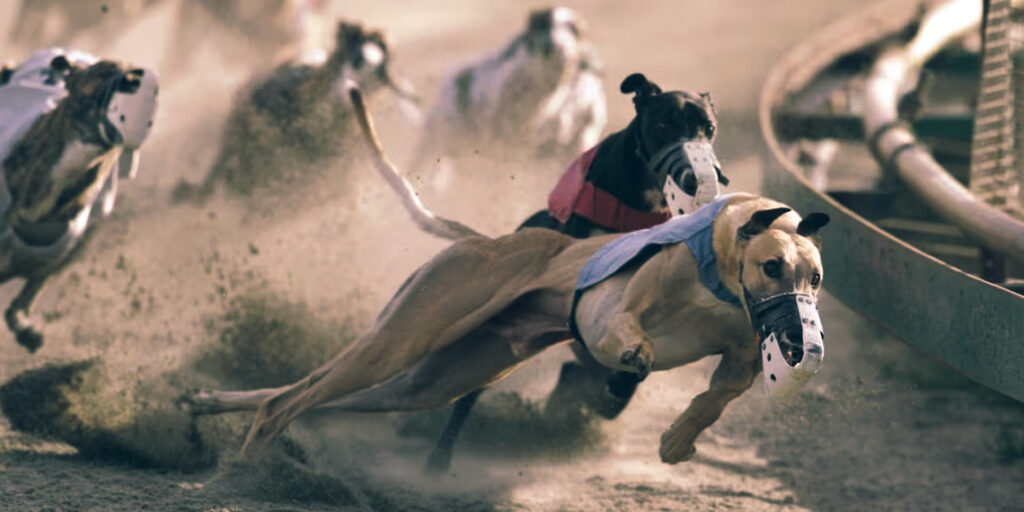A shocking drug scandal has surfaced in the UK greyhound racing industry, with evidence of widespread misuse of norethisterone, a hormone designed exclusively for women.
Greyhound Rescue Wales says this illegal practice is being overlooked, raising serious animal welfare and legal concerns.
Illegal Importation of Norethisterone
Vets and trainers in the greyhound racing industry have been found importing norethisterone without the required licenses, often sourcing the drug from Southeast Asia.
This hormone, intended to delay menstruation in women, is being administered to female greyhounds to suppress their natural cycles. By avoiding their biological “season,” greyhounds can race year-round, maximising profits.
While the practice can be legal if prescribed by a licensed vet, the illegal importation of norethisterone has surged due to a shortage of legitimate supplies.
Alarmingly, Greyhound Rescue Wales suggests that this practice is commonplace, with potentially thousands of female racing dogs being treated with the hormone at any given time.
Contamination and Criminal Offences
Random doping tests conducted by the Greyhound Board of Great Britain (GBGB) have revealed contaminants in the illegally imported norethisterone.
Over 30 cases this year alone resulted in disciplinary action against trainers after dogs tested positive for substances linked to the drug. The charity warns this indicates serious criminal offences on a widespread scale.
Environmental and Ethical Concerns
The misuse of norethisterone not only raises ethical questions but also poses environmental risks. Contaminants from kennels are suspected of entering wastewater, potentially harming aquatic ecosystems.
Trainers reportedly avoid spaying female dogs due to costs and the time required for recovery, further perpetuating the reliance on these unlicensed hormones.
Calls for Action
Greyhound Rescue Wales has called on the Veterinary Medicines Directorate (VMD) to prosecute offenders, investigate the illegal importation of norethisterone, and enforce stricter regulations on prescribing.
It also highlighted that the GBGB currently tests only 2% of runners, suggesting that the true scale of the problem remains hidden.
Regulatory Responses
The GBGB claims it has taken disciplinary measures against offenders and reported concerning cases to Border Force, the VMD, and the Royal College of Veterinary Surgeons. However, fines for offences have been relatively minor, typically amounting to just a few hundred pounds.
Greyhound Racing Under Fire
Greyhound racing has faced increasing scrutiny in recent years. In 2024, New Zealand announced plans to ban the sport due to high injury rates among dogs. Meanwhile, greyhound deaths at UK racetracks have risen, leading to renewed calls for a ban. Scotland is moving toward legislation to prohibit the sport, and the Welsh government is considering a similar move after a consultation with over 1,000 responses.
Animal Welfare Groups Demand a Ban
Leading organisations, including Dogs Trust, Blue Cross, and the RSPCA, have united in calling for a UK-wide ban on greyhound racing. Critics argue that self-regulation within the industry allows it to operate outside the law, further endangering animal welfare.


